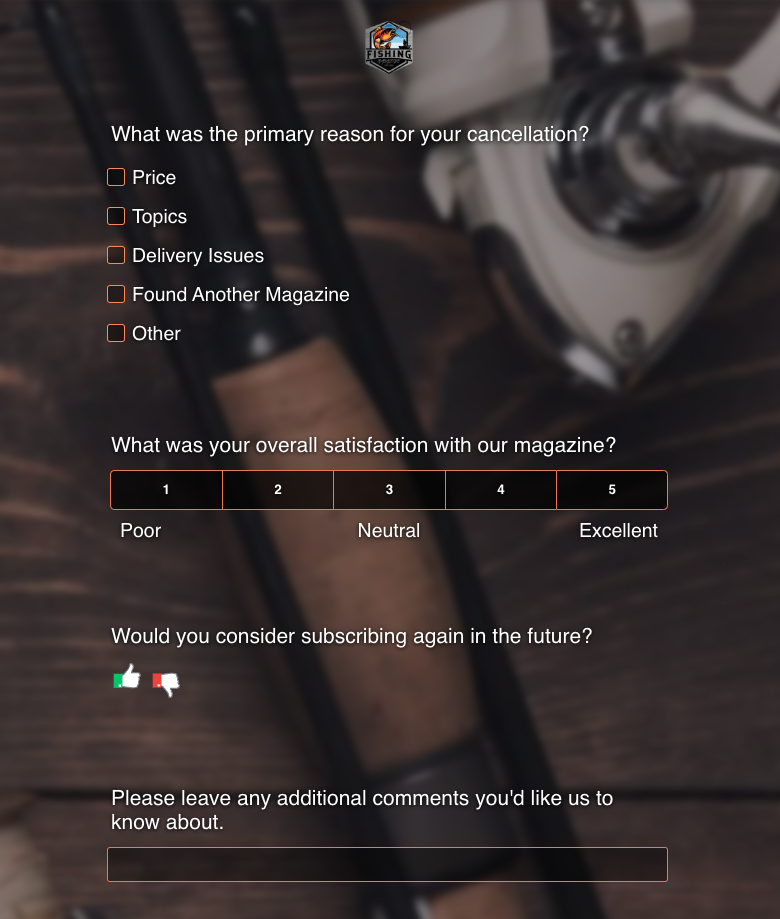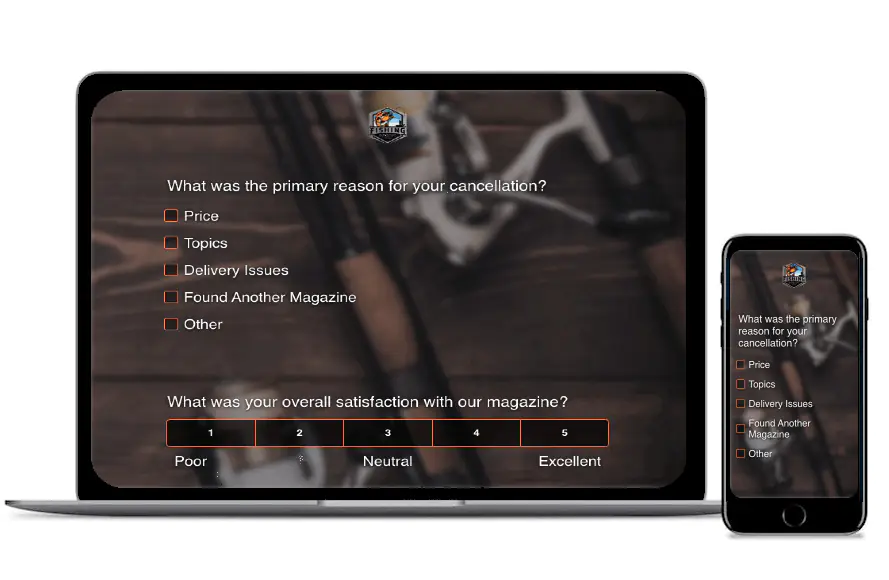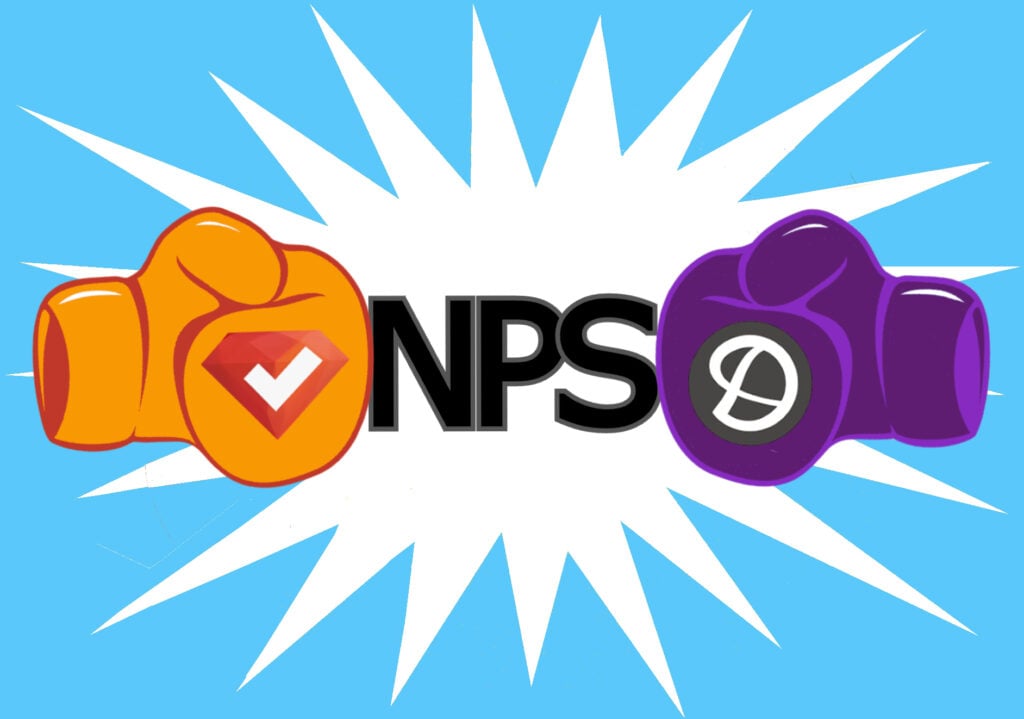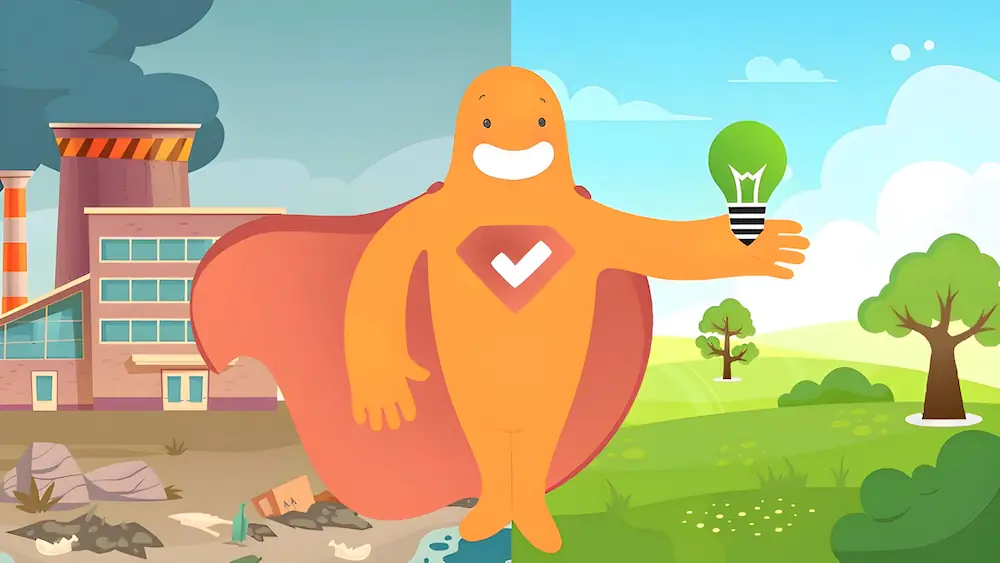No company likes to see a customer leave. For one, it’s been drilled into all of us that it costs a lot more to acquire a new customer than it does to retain an existing customer. So, our bottom line takes a hit with every lost customer in more ways than one. To stop a potential bleed of customers, it can be beneficial for companies to conduct cancellation surveys and/or subscription cancellation surveys in an effort to get to the heart of why customers are jumping ship.
Create Your FREE Cancellation Survey or Questionnaire Now!
What Is A Cancellation Survey?
A cancellation survey is a feedback form that companies use to understand the reasons why a customer or subscriber has decided to cancel their service (sometimes a regularly delivered product) or subscription. These surveys help gather valuable insights into the reasons for dissatisfaction, preferences, and areas for improvement (they may also discover that it is none of the above; the customer could simply be leaving the service area, for example).
Typically, the information collected is used to make adjustments to the product, service, or overall customer experience to reduce future cancellations and enhance customer retention. These surveys are typically conducted online, often immediately after the cancellation request to capture the customer’s feedback while the experience is still fresh on their mind.
7 Reasons To Use A Cancellation Survey
There are numerous cancellation survey benefits. Here are our top seven for any organization to consider.
1. Identifying Pain Points
These surveys can give companies specific reasons why customers are leaving, which helps pinpoint issues with the product, service, or overall customer experience. Often, the reasons cited are unexpected and different from what may have been collected internally, as the customers are outsiders and not attached to the product or service the way the company is.
2. Improving Retention
By addressing the feedback and concerns gathered from cancellation surveys, companies can make improvements to retain more customers. And get this: Studies show that just a 5% increase in customer retention can increase company revenue by 25-95%.
3. Enhancing Product Development
Insights from cancellation surveys can inform product or service enhancements, ensuring that future offerings better meet customer needs and expectations. Some companies have even begun customer co-creation initiatives, asking customers for ideas that are then implemented.For example, Swedish home goods retailer IKEA encourages customers and fans to develop new products. They ask customers for product idea suggestions, run IKEA Bootcamps to work with entrepreneurs, collaborate with university students on product solutions, and connect with innovation labs around the world. Learn more about customer co-creation.
4. Understanding Market Trends
Collecting data on why customers cancel can reveal broader market trends and shifts in customer preferences, allowing companies to adapt accordingly. Think about it: If Blockbuster has analyzed why so many customers were canceling their accounts, they may have noticed, before it was too late, that they were all switching to mail services like Netflix, and later, streaming services (which have now bankrupted RedBox).
5. Increasing Customer Satisfaction
By responding to feedback and making visible changes, companies can improve overall customer satisfaction and potentially win back former customers. Customers like to know that they are valued, and by asking their opinion, and acting on it, they feel heard. This also helps to reduce churn, as analyzing cancellation reasons can help develop strategies to proactively address common issues, thereby reducing the overall churn rate.
6. Benchmarking Performance
Regularly conducting cancellation surveys allows companies to track changes over time and measure the impact of any interventions or improvements made based on previous feedback. If changes were made but churn has not decreased, companies can look at new initiatives or solutions and try again.
7. Retaining Customers With Incentives
A cancellation survey gives a company one last chance to retain the customer, especially if they are canceling due to something like price. The survey can offer customers the option to come back at a lower rate, or at a lower tier of service. These cancellation offers are often successful in bringing back customers who don’t want to find a new product or service or haven’t found one they like.
10 Questions To Ask On A Cancellation Survey
Creating an effective cancel survey involves asking the right questions to gather actionable feedback. Here are some key questions to consider including in a cancellation survey form:
- What is the primary reason for your cancellation?
- Multiple Choice Options: Price, Quality, Customer Service, Found a Better Alternative, No Longer Needed, Other (please specify)
- What was your overall satisfaction with our product/service?
- Scale: Very Satisfied, Satisfied, Neutral, Dissatisfied, Very Dissatisfied
- Did you encounter any specific issues or problems with us?
- Options: Yes, No (Include a text box to describe if there was an issue)
- Do you feel that our product/service provided good value for the money?
- Scale: Strongly Agree, Agree, Neutral, Disagree, Strongly Disagree
- How would you rate your experience with our customer support team?
- Scale: Excellent, Good, Average, Poor, Very Poor
- How likely are you to consider using our product/service again in the future?
- Scale: Very Likely, Likely, Neutral, Unlikely, Very Unlikely
- What improvements or changes could we make to retain you as a customer?
- Text Box
- Are you switching to a competitor? If yes, what aspects of their product/service influenced your decision?
- Options: Yes, No (Include a text box to describe why they switched to the competition)
- What could we do to change your mind about cancelling?
- Multiple Choice Options: Lower Price, Higher Quality, Better Customer Service, Other (please specify)
- Please leave any additional comments for us.
- Text Box
By asking these questions, you can gather detailed and useful feedback to understand the reasons behind cancellations and take steps to improve your offerings and customer experience. If a departing customer says that you could in fact change their mind about canceling, you can have a representative ready to reach out to them with an offer or have their response trigger an email that provides them with an offer to re-subscribe.
Cancellation Survey Example
In the subscription cancellation survey below created with SurveyLegend, you’ll see we’ve created a cancel survey template for a fishing magazine. The survey is branded with the magazine’s logo, and has a custom fishing-themed background. The survey is short and to-the-point, using a variety of types of question formats and asking similar queries to what we highlighted previously.

Conclusion
Cancellation surveys and subscription cancellation surveys are valuable for any business, helping them gain insights into customer satisfaction (or dissatisfaction) while identifying areas for improvement. By understanding the reasons behind customer cancellations, companies can address common issues, refine their products or services, and enhance the overall customer experience in order to retain customers, and ultimately, boost the bottom line. Ready to create your cancellation survey? Start today for free with SurveyLegend!
Have you used cancellation surveys at your company? Have you ever taken a discontinue survey yourself when discontinuing service? What did they do right or do wrong? Sound off in the comments!
Create Your FREE Cancellation Survey or Questionnaire Now!
Frequently Asked Questions (FAQs)
When conducting cancellation surveys, there is a risk of receiving biased or unrepresentative feedback, especially if only a small, specific subset of customers chooses to respond. Try using channels to gather feedback, not just from cancellations, to get a more balanced viewpoint.
Cancellation surveys may focus on the negative, as those who have had a bad experience tend to be more vocal than those who have had a good experience. Focusing too much on negative feedback from cancellations might skew the overall perception of customer satisfaction and lead to overreactions or unnecessary changes. Try to diversify feedback channels in order to get a more balanced customer viewpoint.
Both types of surveys have similarities. To gain a better understanding, check out our blog How To Create An Unsubscribe Survey. It includes implementation, questions to ask, and an unsubscribe survey example.





